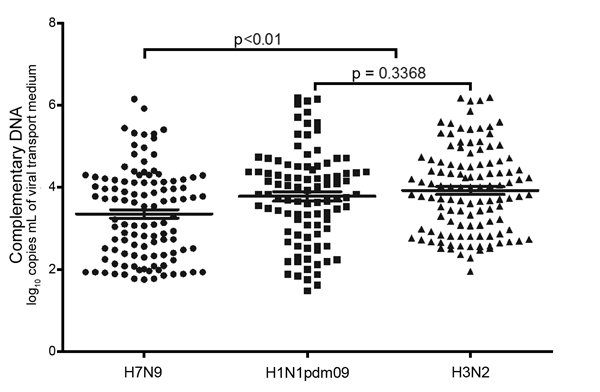Volume 21, Number 1—January 2015
Dispatch
Rapid Diagnostic Tests for Identifying Avian Influenza A(H7N9) Virus in Clinical Samples
Figure 1

Figure 1. Viral loads of throat swab specimens collected from persons with avian influenza A(H7N9) and seasonal A(H3N2) and A(H1N1)pdm09 virus infection. Statistical analyses were performed by using a 1-way analysis of variance for the 3 groups and an unpaired t-test for comparison between the 2 seasonal influenza virus groups. Horizontal lines indicate medians and 95% CIs (above and below means).
1These authors contributed equally to this article.
2These authors contributed equally to this article.
Page created: December 19, 2014
Page updated: December 19, 2014
Page reviewed: December 19, 2014
The conclusions, findings, and opinions expressed by authors contributing to this journal do not necessarily reflect the official position of the U.S. Department of Health and Human Services, the Public Health Service, the Centers for Disease Control and Prevention, or the authors' affiliated institutions. Use of trade names is for identification only and does not imply endorsement by any of the groups named above.